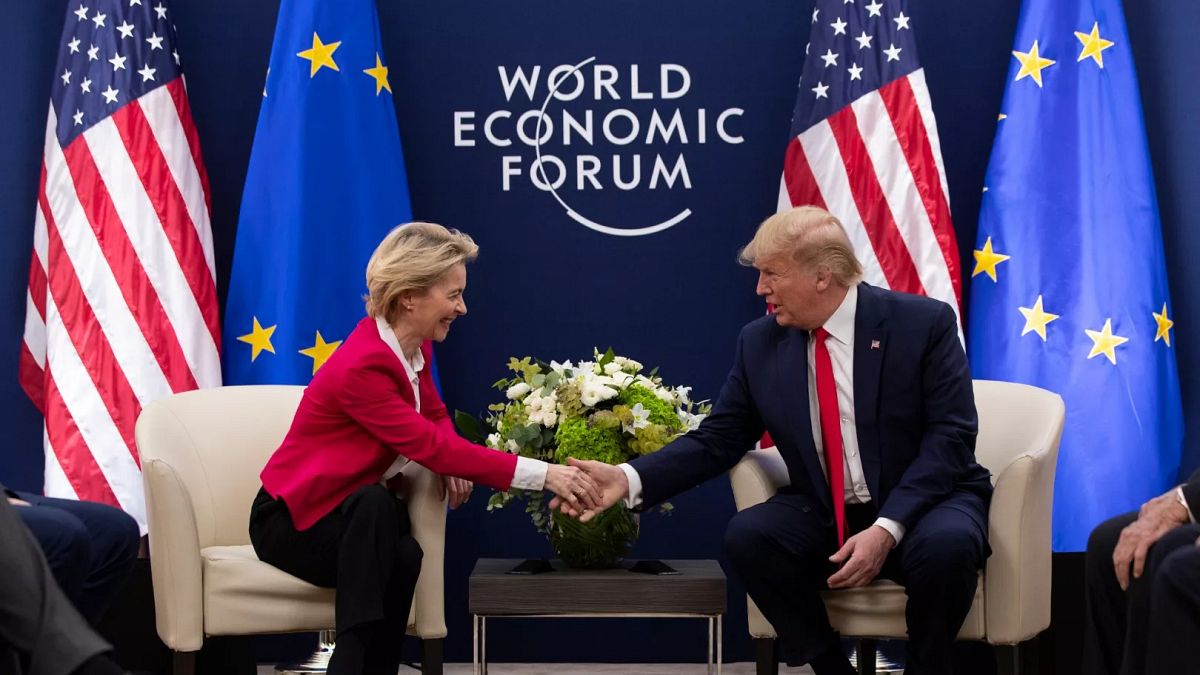

In a world that continues to swirl with change and movement, several significant developments in trade, business, and policy have emerged, painting a picture of a globally interconnected marketplace. As countries and corporations alike navigate this dynamic landscape, they are engaging in thoughtful dialogues and strategic moves that underscore the complexity and interconnectedness of modern economies.
The President of the European Commission, Ursula von der Leyen, will meet with former President Donald Trump in Scotland this Sunday to engage in discussions focused on transatlantic trade relations. This meeting symbolizes an ongoing commitment to nurturing a cooperative trade environment between the European Union and the United States. The gathering highlights the vital importance both parties place on fostering strong economic ties, supported by mutual understanding and shared objectives. Scotland, with its warm reception, will serve as the backdrop for these pivotal talks intended to reinforce ties across the Atlantic.
Elsewhere, Kazakhstan is making strides in attracting foreign direct investment (FDI) amidst a global slowdown in FDI flows. Despite the general decline, Kazakhstan continues to draw significant investments through multibillion-euro deals. Officials in the country emphasize that the ebb is part of a cyclical trend rather than an indication of diminishing investor confidence. With robust policies and incentives geared towards attracting and retaining foreign investments, Kazakhstan remains a promising destination for international businesses looking to expand their footprint in Central Asia.
In a related policy shift within the European Union, Meta, the company formerly known as Facebook, has taken a decisive step to halt political advertising within the EU. This decision stems from the introduction of new EU transparency rules, which are set to take effect on October 10th, aimed at curbing foreign interference in political processes. These rules were deemed ‘unworkable’ by Meta under current frameworks, prompting the company to pause its politically targeted advertising endeavors across the region. This move underscores the growing complexities technology companies face in navigating regulatory and transparency challenges in various jurisdictions.
In the world of retail, notable changes are underway as Carrefour, a leading global supermarket chain, has sold its Italian supermarkets to NewPrinces for €1 billion. The Reggio Emilia-based group, known for owning multiple food brands, has stepped into large-scale distribution by acquiring around 1,000 Carrefour outlets across Italy. This significant acquisition marks an ambitious expansion for NewPrinces, positioning it as a new powerhouse in the Italian retail sector, and exemplifying the continuous evolution and consolidation within the retail industry.
Together, these developments reflect the myriad ways countries and corporations are adapting to and shaping the dynamic global business environment. Each step, whether it’s top-level trade talks, strategic investments, regulatory adaptations, or major business acquisitions, plays a part in weaving the intricate fabric of our world economy. As these stories unfold, they remind us of the mindful equilibrium that drives international cooperation and economic progress.
Source: {link}
